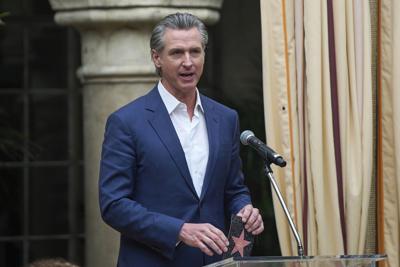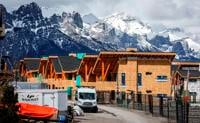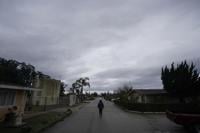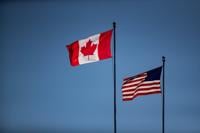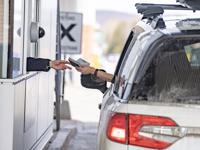║┌┴¤│ď╣¤═°sÔÇÖ boycott of travel to the U.S. is hitting hard on CaliforniaÔÇÖs sandy shores, prompting the stateÔÇÖs governor to make a social media pitch-plea to come back.
Gov. Gavin Newsom, in a video this week, is urging the two million ║┌┴¤│ď╣¤═°s who visited last year to look past U.S. President Donald Trump and return to enjoy the Golden StateÔÇÖs wine, sun and surf.
Newsom, without calling out Trump by name, says ║┌┴¤│ď╣¤═°s should not let a dust-up with Washington stop them from renewing their love affair with his coastal paradise.
ÔÇťSure, you-know-who is trying to stir things up back in D.C., but don't let that ruin your beach plans," Newsom says in the video, which is part of a US$5.2-million advertising effort to lure Canucks back over the border.
║┌┴¤│ď╣¤═°s have sharply curtailed vacation plans south of the border in recent weeks given an ongoing tariff war with the United States, a comparatively weak dollar, reports of travellers being detained by U.S. officials, and Trump openly musing about annexing the country.
Though Trump has recently relented from his verbal attacks on Canada, White House press secretary Karoline Leavitt reiterated on Tuesday that he still thinks Canada should become the 51st state.
California estimates ║┌┴¤│ď╣¤═°s are the second-biggest international spenders for its tourism economy, and state tourism officials say visits by ║┌┴¤│ď╣¤═°s dropped 12 per cent in February compared with the same month last year.
ÔÇťWe kind of want to reach out and say, ÔÇśYouÔÇÖre always welcome here when youÔÇÖre ready to travel,ÔÇÖÔÇŁ said Caroline Beteta, president of industry-led state tourism marketer Visit California.
In Canada, travel agents paint a grimmer picture.
McKenzie McMillan, a travel consultant with the Vancouver-based Travel Group, said overall business at the agency has remained steady as clients have chosen to avoid the U.S. for Europe, Asia and Mexico. But business to the United States has virtually dried up.
"We have seen a near-total collapse of U.S. business. We have some business based on our corporate clients travelling down for conferences or for board meetings," McMillan said in an interview.
"But for leisure travel we've almost seen a complete drop-off ... probably about a 90 per cent drop since February."
McMillan said tourism boards need to do more than just make a pitch for ║┌┴¤│ď╣¤═°s to come back.
"There's anger among ║┌┴¤│ď╣¤═° travellers, not so much with Americans but with the federal government in the United States and in other outreach I've seen, no one has addressed that exact issue," he said.
McMillan said the California campaign is a bit more light-hearted and appears to be aimed at younger travellers.
"It makes it very clear that the state of California is not interested in aligning with the federal government's policies when it relates to Canada," McMillan said.
"For a lot of ║┌┴¤│ď╣¤═°s that have made an emotional decision to avoid the United States, this might resonate with them."
Lesley Keyter, the CEO and founder of the Travel Lady agency in Calgary, said traveller concerns and anxieties are real, so much so they are voting with their wallets -- or voting to abandon their wallets.
"I've seen people actually forfeit money to cancel their trips to go down there," Keyter said in an interview.
"Even if they're going on a Caribbean cruise, they don't want to go down to Fort Lauderdale to get on the cruise ship."
This report by ║┌┴¤│ď╣¤═° was first published April 15, 2025.

